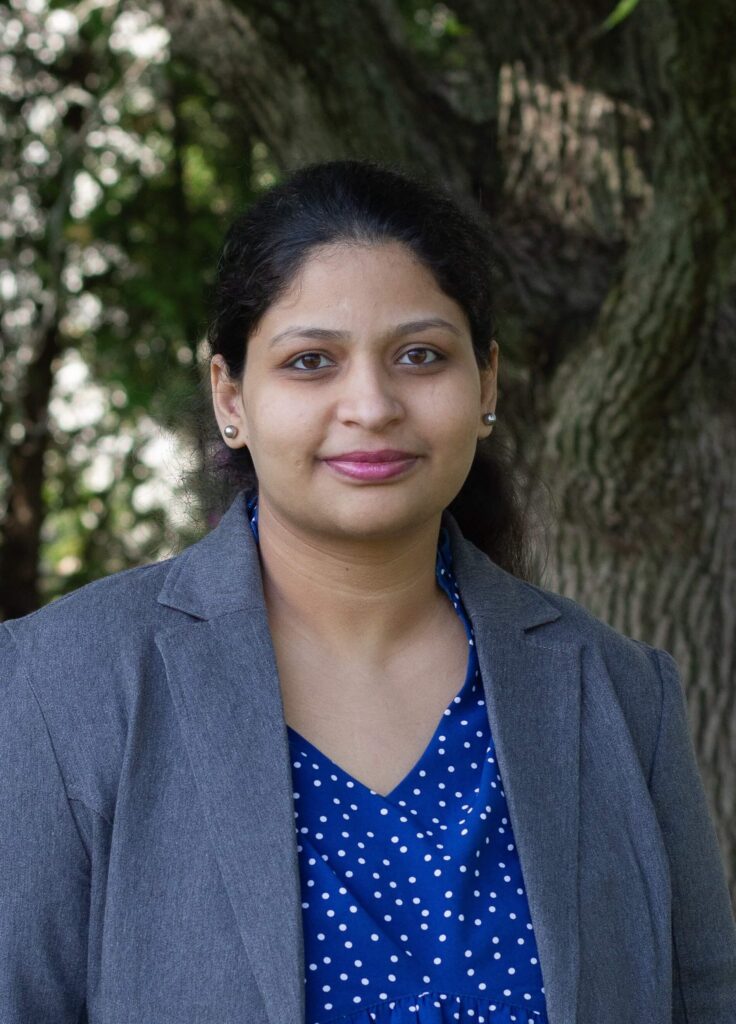
Topics
- Challenges and Crises
- Enabling Environment
- Financial Capability
- Financial Health
- Financial Inclusion Strategy
Series
Evelyn Stark is assistant vice president at MetLife Foundation and a CFI Advisory Council Member. She leads MetLife Foundation’s financial health strategy which seeks to improve outcomes for low- and moderate-income people by advancing the use of high-quality financial services. Before joining MetLife Foundation, she held leadership roles at the Gates Foundation, USAID, and the World Bank. Before that, she spent several years implementing financial inclusion programs in East Africa.
Responding to COVID-19
When COVID-19 emerged in early 2020, the foundation worked quickly to commit $25 million to support partners with urgent needs and longer-term relief efforts. For projects such as FinnSalud, this meant a shift in research focus to understanding how people were coping as the crisis deepened and became the new normal. For financial institutions, such as credit unions, this meant stress testing and managing risks to survive the crisis. And for the foundation’s early-stage fintech partners, the focus was on helping manage their funds and hold onto savings, and pivoting their products and services to meet changing needs and the inability to meet customers in-person.
A common trend for many of the foundation’s partners was a shift to digital. Stark credits the existing partnerships in the industry between microfinance institutions and credit unions, for instance, and nonprofit partners such as Accion and BFA, in helping institutions adapt. These trusted partnerships fostered knowledge sharing and allowed institutions to learn from others in the industry. Many funders, like MetLife Foundation, also worked closely with grant partners to adjust grant agreements to determine how funds could be most effective in the changed context.
“The pandemic demystified things for microfinance institutions and traditional banks that have been cautious to get on board with digital. Boards and senior management were already thinking about digital, but COVID brought with it a sense of urgency,” Stark notes.
Behavioral Science and the Promise of Digital
Stark was an early proponent of behavioral science in financial health and believes that understanding how people make decisions is key to improving outcomes. One of the Foundation’s current partners, Common Cents Lab at Duke University, leverages behavioral science to increase the financial well-being of low-income people in the US, Mexico, China, and Turkey. Common Cents Lab has been working closely with fintechs, nonprofits, and credit unions to design innovative products that incorporate behavioral insights to improve financial health.
The combination of behavioral science, fintech, and digital services has the potential to be highly effective at improving the financial health of low-income consumers. Keeping the customer at the center is essential to make sure that the industry doesn’t get caught up in the “cool stuff” that technology can deliver, but remains focused on what low-income people want and need to improve their financial lives, Stark points out.
Together, behavioral science, fintech, and digital services can improve the financial health of low-income consumers.
“We need to think of behavioral science as much more than automation or nudging. Identifying the real issues that make saving money difficult, or that make digital funds susceptible to less optimal spending decisions, is how we’ll be able to create the right fintech environment to encourage the behaviors that enable individuals and families to succeed in reaching their financial goals.”
Likewise, Stark is concerned about the over-hype of what data can deliver, especially where most transactions still happen in cash. The data available to the institutions about their customers is often only a sliver of their financial information; cash transactions and transactions from other institutions are not visible.
“We have a long way to go in making the data useful for our customers while making sure that we protect customers now.”
Financial Health Through the Lens of Jobs
Income is a significant driver of financial health; without living wages, the ability to save, repay debts, and plan for the future is much more difficult. Stark is working with the foundation’s grant partners, who are focused on jobs and employment to embed financial services at the source of income.
“Whether people earn their jobs through formal employment or through gig work, there are opportunities to leverage the ‘paycheck’ (even if there is no actual paycheck). Opportunities to designate income – before or when it’s received – toward emergency, education or retirement savings, to debt repayment, or to purchase insurance or other benefits – enables people to take more control over their financial health.”
Working with grant partners in the jobs and workforce space has helped the foundation focus on financial lives of different kinds of workers.
Several of the foundation’s partners focused on tech jobs. Whether they are based in Chile or New York City, tech jobs offer decent wages and don’t necessarily require a college degree. Partners have historically focused on the hard and soft skills, and on working with employers to ensure a hiring pipeline, but they hadn’t considered the students’ financial health. After the partners started talking to the students about their financial health using structured interviews, they realized not only how indebted many of their young people were when they entered the classes, but also that they did not have plans for how they would manage their significantly larger incomes once they obtained full-time tech work. With that knowledge, these partners are incorporating planning and money management discussions with their students, and with the employers who will hire them.
“Working with grant partners in the jobs and workforce space has really helped us — and them — focus on the financial lives of different kinds of workers, and seek to tailor financial solutions for them.”
Looking Ahead: CFI’s New Strategy
The COVID crisis has prompted Stark to think about how we create solutions for bigger problems in our markets – the income gap, food insecurity, education, and health care. Being truly cross-sectoral in focus is essential.
Stark believes CFI’s new strategy is right for the moment. CFI’s newer focus areas — climate change, data for inclusive finance, and women’s financial inclusion – will help inform how the inclusive finance community navigates the post-pandemic world.
“COVID has made all of us even more aware that there are roles for players in the public and private sectors and for nonprofits, and there are benefits to forging partnerships. COVID has made it even more clear that there are systemic issues that cannot be resolved by a single product and require systemic change.”










